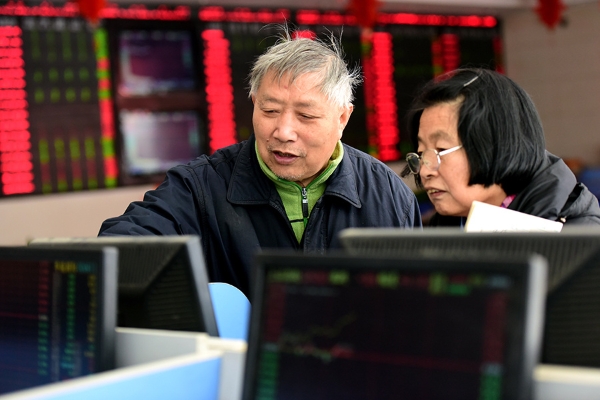Small investors shift focus to value stocks
 0 Comment(s)
0 Comment(s) Print
Print E-mail China Daily, March 18, 2018
E-mail China Daily, March 18, 2018

More individual investors in the Chinese stock market prefer a value investment strategy than engaging in speculative trading, according to a recent report released by the Shenzhen Stock Exchange.
The 2017 Individual Investor Survey Report found 26.5 percent of the people surveyed adopt value investment, increasing by 5.5 percent compared with the previous year, while those endorsing short-term trading fell 5.3 percent to 18 percent of the total.
It is the first time value investment surpassed short-term trading as the dominant investment method for Chinese individual investors, though the proportion of short-term trading adopted by speculators has been declining since 2015.
The data are based on a survey of 15,890 investors 18 to 60 years old in 307 cities, three quarters of them small and medium investors with security assets of less than 500,000 yuan (US$79,018).
The change of investment approach should have a "very positive impact on China's stock market," said Yang Delong, chief economist of Shenzhen-based Qianhai First Seafront Fund.
He told China Daily that company performance now becomes the top factor when selecting a stock, as more and more domestic investors have accepted the concept of value investment, which has rewarded them with excellent results, especially in the past three years.
One reason for the transition is the age of new investors who have joined the market. According to the survey, the average age of new investors was 31.2 in 2017, while five years ago it was 36. Investors younger than 30 account for more than half of the total.
Wang Yuezhou, a 30-year-old investor in Shenzhen, said he had invested about 100,000 yuan and earned about 40,000 yuan in the past three years. With a master's degree in finance, he can analyze listed companies' annual reports and make his decision accordingly.
"I will look at their P/E ratio, profit, asset-liability ratio, liquidity ratio and so on, but never those technical analysis charts," he said.
Yang, with Qianhai First Seafront Fund, noted that young investors tend to have a higher education background, invest more rationally and can easily accept new investing concepts. But he warns that they also lack experience and tend to be frequent traders.






Go to Forum >>0 Comment(s)